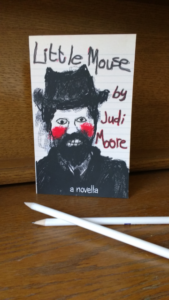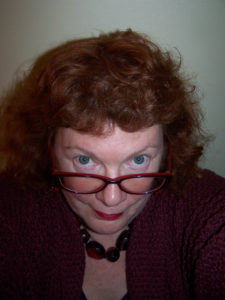This is the inaugural year of the Georgina Hawtrey-Woore Award for Independent Authors. Georgina died, too young, in 2017. As a senior editor at Arrow, Georgina was determined that her authors should fulfil their potential, and, more, she was also a great supporter of WforW. To commemorate her life, the three grannies who run Words for the Wounded determined that Georgina should be honoured. To this end Margaret, Jan and Penny renamed the competition and re-jigged its structure. So now there are four categories.
This year they are delighted that not only are the entry numbers up, so too is the standard. ‘It is heart warming to see so many excellent entries, and a great treat to read them and Georgina would be thrilled.’ Of course, though, there have to be winners and ultimately the team led by Milly Adams, one of her authors, reached unanimous decisions. As in the Non-Fiction Category, the WforW judging team decided on joint 2nd place winners: ‘Just too close to call’. These will be discussed on 12 June.
Fiction Category
1st Place: Little Mouse by Judi Moore
After Kristallnacht in 1938 Doktor Theodore Goldstein, his wife Lisl, and their small son Theo, flee from Berlin to Edinburgh, where they find succour with a relative and build a new life. But then a friend from the old days arrives, a friend who might not be what he seems. Or perhaps it’s what he has been all along?
Little Mouse is what any fiction judging team longs for, a book which is different, and it is one that this team felt was supreme. Little Mouse is succinctly written, structured perfectly, the point of view intact, the characterisation of all the characters spot on, even to the ‘voice’ of the almost four year old, Theo. Within a page it becomes unputdownable, and sustains the attention, leading the reader to the ultimate question: ‘What would I do?’
Judi Moore captures exactly, or so one imagines, the sense of peril felt by this Jewish family in Nazis Germany. She understands the historical perspective, and steadily peels back the layers to reveal the true nature of the friend, but can he really be as they suspect?
Moore’s understated style is multi-layered and subtle as we follow the passage of Theo’s young life as he is forced to burst into an early maturity. Decisions must be made, but what will be the cost to him?
Does this sound tantalising? Well it should. We were all left feeling thoughtful, stretched, enlightened, and moved. Such a novel, such writing and still that question: what would we do?
More about Judi Moore:
I’ve been a professional writer since 1997 producing poetry; long and short fiction; and reviews of poetry, books and music. Between 2006 and 2013 I worked as a part-time creative writing tutor at university level. In 2016 I was commissioned by the Open University choir to write lyrics for a 20-minute piece of music for choir, brass ensemble and percussion, premiered in November 2017.
As I have not, so far, hit the big time with my writing I’ve been living on fresh air and bowls of steam for more than 20 years. And I’ve enjoyed every day of it. I love being steeped in writing: making it, reading it, reviewing and beta-reading other people’s, and providing workshops and teaching materials to enhance other people’s practice of it.
And more about Little Mouse:
The first novel I published (by no means the first I wrote) was Is death really necessary? It is set in 2038, as some of what happens in it is still beyond our current technology. I decided that Theo Goldstein should be a factor throughout the book. To fulfill that purpose the reader had to first meet him as a small child and then re-encounter him as an old man. The book needed to start with a bang, so I started jotting down dates, working back 100 years from various points in the future and seeing what was happening around then that looked bangworthy. And there was Kristallnacht, an event I’d always wanted to write about. So I set the beginning of the book on Kristallnacht 1938 and used their experiences in 1938 to show what had made the family so dysfunctional by the beginning of Is death really necessary? in 2038.
Unsurprisingly, all that luscious backstory completely overwhelmed the novel’s actual story. I cut. And cut. And cut. Which left all this unused good stuff in forlorn electronic piles. When the dust of publishing Death had settled I revisited those piles. I reckoned if I could develop a plot to weave through, something worthwhile could be made of it. In the interstices of other work I evolved the story about a villain from the war threatening the Goldsteins new life in Edinburgh. Herr Dr Schmeling (also cut from Death) immediately recommended himself as a suitable scoundrel. Et voilá.
http://www.judimoore.wordpress.com
Little Mouse by Judi Moore, pub in conjunction with Moo Kow Press.
Available from Amazon.co.uk in e-book and paperback: https://www.amazon.co.uk/Little-Mouse-Judi-Moore/dp/1785100998/ref=sr_1_1?ie=UTF8&qid=1528378014&sr=8-1&keywords=Judi+moore+Little+Mouse


